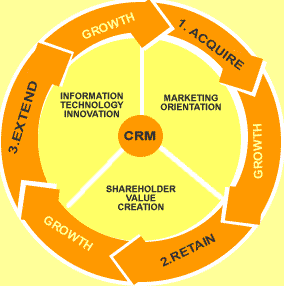With company and brand reputations more
transparent than ever, the importance of managing your company’s customer
service has never been more crucial. Facing the dilemma of marketing and
advertising costs at a premium, why not learn to leverage the “free and low
cost marketing” that is grossly under-used: Customer Retention?
Here are some customer
retention strategies you can use to develop and maintain relationships with
your customers and keep them coming back for more:
1. Acknowledge customers by name
Customer Relationship Management (CRM) software has
made it easy to profile and track everything about your customers, but don’t
forget that one of the easiest ways to create a personal connection is to call
a customer by name. Whether in person, on the phone, or in an email,
acknowledging a customer by name is an easy way to personalize the experience.
2. Reducing Attrition
The easiest way to grow your business is not to
lose your customers. Virtually every business loses some customers, but few
ever measure or recognize how many of their customers become inactive. Most
businesses, ironically, invest an enormous amount of time, effort and expense
building that initial customer relationship. Then they let that relationship go
unattended. In some cases they lose interest as soon as the sale has been made,
or even worse, they abandon the customer when an easily resolvable problem
occurs, only to have to spend another small fortune to replace that customer. Once
you stop the leakage, it’s often possible to double or triple your growth rate
because you’re no longer forced to make up lost ground just to stand still.
3. Keep it simple
As technical as the business world has become,
simplicity is still king. Some companies encourage staff to send handwritten
letters thanking customers for their business. Remember that creating a
positive experience when you’re face to face with a customer is key to increasing
customer retention; it’s as easy as looking the customer in the eye and telling
them how much you appreciate their business.
4. Extraordinary Customer Service
The never-ending pursuit of excellence is to
keep customers so satisfied that they tell others how well they were treated
when doing business with you. Moving the product or service you deliver into
the monarchy of the extraordinary by delivering higher than expected levels of
service to each and every customer. Key facets include: dedication to customer
satisfaction by every employee; providing immediate response; going above and
beyond the call of duty; consistent on-time delivery; delivering what you
promise before AND after the sale. Extraordinary service builds fortunes in
repeat customers, whereas poor service will drive your customers to your
competitors.
5. Stay connected after the sale
Make email marketing efforts and social media
tools a part of your customer retention strategy, so you can stay connected
with customers long after they've left your store or office. Keep in touch with
customers to gauge their experience with a product, or use an email newsletter
to provide relevant content that they can share with their network. In
addition, connecting with customers through social media sites allows you to
resolve any issues and answer their questions directly.
Other customer retention strategies include:
- Welcome Book
- CRM Systems
- Loyalty Programs
- Magic Moments
- Overcome Buyer’s Regret
- Personal Touches
- Premiums and Gifts
- Questionnaires and Surveys
- Blogs
- Social Media





